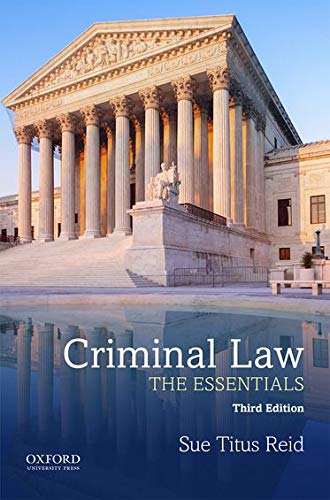congluat550
New member

[Nhận Mã Giảm Giá Khi Đặt Mua Ngay - Đừng Chần Chừ!]: (https://shorten.asia/WuaqNswt)
** Luật hình sự: Các yếu tố cần thiết **
#CriminalLaw #LAW #Justice
**Tổng quan**
Luật hình sự là cơ quan của pháp luật định nghĩa và trừng phạt hành vi được coi là một tội ác.Đó là một nhánh của luật công, và mục tiêu của nó là bảo vệ xã hội khỏi bị tổn hại.Luật hình sự là khác biệt với luật dân sự, liên quan đến các tranh chấp giữa các bên tư nhân.
** Các yếu tố của một tội phạm **
Để một người bị kết án về tội phạm, công tố phải chứng minh vượt quá sự nghi ngờ hợp lý rằng tất cả các yếu tố sau đây đều có mặt:
*** Một hành vi tội phạm: ** Đây là hành vi bị cấm theo luật pháp.
*** Một tâm trí tội lỗi: ** Đây là ý định phạm tội.
*** Nguyên nhân: ** Đạo luật tội phạm phải gây hại cho người khác hoặc cho xã hội.
*** Sự đồng tình: ** Tất cả các yếu tố của tội phạm phải có mặt cùng một lúc.
** Các loại tội phạm **
Có nhiều loại tội phạm khác nhau, nhưng chúng thường có thể được chia thành hai loại: trọng tội và tội nhẹ.Felonies là những tội ác nghiêm trọng bị phạt tù trong hơn một năm.Tội nhẹ là những tội ác ít nghiêm trọng bị trừng phạt do tù đày trong chưa đầy một năm hoặc bị phạt tiền.
**Tố tụng hình sự**
Quá trình đưa một vụ án hình sự chống lại bị cáo được gọi là thủ tục tố tụng hình sự.Nó bắt đầu với việc điều tra một tội ác của cảnh sát.Nếu cảnh sát có đủ bằng chứng để hỗ trợ một khoản phí, họ sẽ nộp đơn khiếu nại lên tòa án.Bị cáo sau đó sẽ bị bắt và đưa ra tòa để buộc tội.Tại phiên tòa, bị cáo sẽ được thông báo về các cáo buộc chống lại họ và sẽ đưa ra một lời nhận tội hoặc không có tội.
Nếu bị cáo không nhận tội, vụ án sẽ được đưa ra xét xử.Phiên tòa sẽ được chủ trì bởi một thẩm phán hoặc bồi thẩm đoàn, và công tố sẽ trình bày bằng chứng của mình chống lại bị cáo.Quốc phòng sau đó sẽ có một cơ hội để trình bày bằng chứng của nó.Sau khi bằng chứng đã được trình bày, bồi thẩm đoàn sẽ cân nhắc và quyết định xem bị cáo có tội hay không có tội hay không.
Nếu bị cáo bị kết tội, thẩm phán sẽ kết án họ với một hình phạt phù hợp với tội phạm.Hình phạt có thể bao gồm tù, phạt tiền hoặc cả hai.
**Phần kết luận**
Luật hình sự là một phần quan trọng của xã hội chúng ta.Nó giúp bảo vệ chúng ta khỏi bị tổn hại và để đảm bảo rằng công lý được phục vụ.Nếu bạn quan tâm đến việc tìm hiểu thêm về luật hình sự, có nhiều tài nguyên có sẵn trực tuyến và trong các thư viện.
=======================================
[Nhận Mã Giảm Giá Khi Đặt Mua Ngay - Đừng Chần Chừ!]: (https://shorten.asia/WuaqNswt)
=======================================
**Criminal Law: The Essentials**
#CriminalLaw #LAW #Justice
**Overview**
Criminal law is the body of law that defines and punishes conduct that is considered to be a crime. It is a branch of public law, and its goal is to protect society from harm. Criminal law is distinct from civil law, which deals with disputes between private parties.
**Elements of a Crime**
In order for a person to be convicted of a crime, the prosecution must prove beyond a reasonable doubt that all of the following elements are present:
* **A criminal act:** This is the conduct that is prohibited by the law.
* **A guilty mind:** This is the intent to commit the crime.
* **Causation:** The criminal act must have caused harm to another person or to society.
* **Concurrence:** All of the elements of the crime must be present at the same time.
**Types of Crimes**
There are many different types of crimes, but they can generally be divided into two categories: felonies and misdemeanors. Felonies are serious crimes that are punishable by imprisonment for more than one year. Misdemeanors are less serious crimes that are punishable by imprisonment for less than one year or by a fine.
**Criminal Procedure**
The process of bringing a criminal case against a defendant is known as criminal procedure. It begins with the investigation of a crime by the police. If the police have enough evidence to support a charge, they will file a complaint with the court. The defendant will then be arrested and taken to court for arraignment. At arraignment, the defendant will be informed of the charges against them and will enter a plea of guilty or not guilty.
If the defendant pleads not guilty, the case will go to trial. The trial will be presided over by a judge or jury, and the prosecution will present its evidence against the defendant. The defense will then have an opportunity to present its evidence. After the evidence has been presented, the jury will deliberate and decide whether the defendant is guilty or not guilty.
If the defendant is found guilty, the judge will sentence them to a punishment that is appropriate for the crime. The punishment may include imprisonment, fines, or both.
**Conclusion**
Criminal law is an important part of our society. It helps to protect us from harm and to ensure that justice is served. If you are interested in learning more about criminal law, there are many resources available online and in libraries.
=======================================
[Sản Phẩm Này Làm Mê Mẩn Bất Cứ Ai - Đặt Mua Ngay!]: (https://shorten.asia/WuaqNswt)






